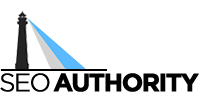Google Business links policies and guidelines updated

Google has made several additions to the business links policies & guidelines within the Google Business Profiles help section. Google doubled the size of the document, adding new sections for dedicated landing pages, direct action completion, social media sites and a new business links crawability policy.
Here are the new sections that those in the local SEO space and business owners should be aware of.
Dedicated landing pages. Google added a new section called “Dedicated landing page” that reads:
Local business links must lead to a dedicated landing page for your business. For businesses with multiple locations, action links must lead to a website for a specific location. Avoid general landing pages or a landing page for another location of the same business.
Direct action completion. Google also added another section named “Direct action completion.”
Local business links must allow customers to complete the designated action. For example, an “order” link must allow the customer to complete an order. Local business links cannot be:
- Social media sites
- Messaging links
- App store links
- Link shorteners
Business links crawlability policy. Then Google added a much larger section named Business links crawlability policy. In there there are defintions for link crawlability, automated bot protection, crawlability requirements, and more. Here is that section:
To ensure business information on Google is accurate and trustworthy, we verify the links you provide on your Business Profile. Our automated crawlers will visit these links daily at most to confirm they lead to a valid and relevant webpage. If a link cannot be accessed by our crawlers, we cannot verify it, which may lead to the removal of the link. This policy explains how to ensure your links are accessible to our systems for verification purposes.
Definitions
- Link crawlability: The ability of Google’s automated systems, like crawlers or bots, to access the content at a given URL. This includes the ability to follow redirects and access all necessary resources like images, scripts, and stylesheets.
- Automated bot protection: Any mechanism employed by a website to block, throttle, or limit access by automated systems. This usually prevents malicious activity, scraping, or excessive server load. This includes, but is not limited to:
- robots.txt files that disallow access to specific paths
- Rate limiting or request throttling
- CAPTCHA challenges or other forms of verification
- IP address blocking
- User-Agent string restrictions
- Content cloaking or serving different content to bots than human users
- User-Agent: Identifies the type of client, like browser or crawler, that is accessing a web resource.
- HTTP status codes: Numerical codes returned by a server to indicate the status of a request. For example, a 404 error code indicates that the page wasn’t found and a 500 error code indicates a server error.
Crawlability requirements
Important: To enforce this policy, these business link verification crawlers don’t follow robots.txt rules.
All business links used in your Google Business Profile must meet the following criteria:
- Unrestricted access: Links must be accessible to our automated crawlers without restriction. This means that the website must not:
- Block bot traffic identified by the User-Agent GoogleOther. Learn how to identify traffic from GoogleOther crawlers.
- Implement rate limiting or throttling that prevents our crawlers from accessing content.
- Require CAPTCHAs, login, or other forms of verification for our crawlers to access content.
- Implement IP address blocking that prevents our crawlers from accessing content.
- Use content cloaking to serve different content to crawlers versus human users.
- Functional links: Links must resolve to a working webpage that returns a valid HTTP status code.
- The link must return a “200 OK” status code or a similar successful code.
- The link must not return error codes such as:
- “404 Not Found”
- “403 Forbidden”
- “500 Internal Server Error”
- “503 Service Unavailable”
- Complete loading: Our crawlers must be able to fully load the page. This includes all resources like images, CSS, and JavaScript.
- No geoblocking: The page must not be blocked by a DNS provider or by any geo-based mechanism.
Why we care. For those who manage local businesses on Google or have their own local business, reviewing these updated business link policies and guidelines is probably a good idea. Dedicated landing pages are not just a good practice but probably a requirement, plus the other additions to this document are important to understand.






Recent Comments